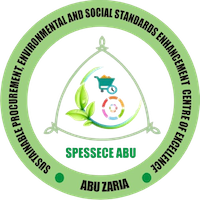
Academic offerings include 95 majors, 86 minors, and more than 100 in-major specializations
The aim of this programme is to produce procurement experts whose skills will improve governance and efficiency,
enhance the efficiency and effectiveness of service delivery and improve value for money in private and public expenditure.
The objectives of the programme are to:
As the need for capacity building in the area of procurement management increases, more academic staff with requisite skills to take academic positions in tertiary institutions in Nigeria would be required. This would exert pressure on institutions offering programmes in procurement. Therefore, establishing a programme that will produce qualified academics becomes imperative. Furthermore, this programme would develop procurement researchers that would advance the frontiers of knowledge in procurement. It is also pertinent to note that this programme would support Government’s national economic growth plan as it will plenty employment opportunities for the citizens.
The programme targets procurement officers serving in various government ministries, Departments and agencies at state and Federal levels. It will also admit candidates with PGD in procurement Management who seek to advance their skills and qualification in procurement. Furthermore, it also envisaged that graduates with keen interest in procurement whose first degrees are not in procurement would join the programme.
The programme targets procurement officers serving in various government ministries, Departments and agencies at state and Federal levels. It will also admit candidates with PGD in procurement Management who seek to advance their skills and qualification in procurement. Furthermore, it also envisaged that graduates with keen interest in procurement whose first degrees are not in procurement would join the programme.
The duration of the programme is a minimum of four (4) semesters and a maximum of six (6) semesters
To earn a Master of Science Degree in Procurement Management, a student shall have a minimum of 33 credit units and 24 credit units of dissertation.
Courses shall be delivered using the blended method (both physical and virtual participation) Each taught course shall be assessed by a combination of course examination and coursework assignments. The course examination accounts for 60 per cent of the total course marks and the coursework assignments accounts for 40 per cent of the total course marks. The minimum pass mark is 50 per cent in each course. In the case of project/dissertation, students must achieve at least 50 per cent, in accordance with the rules of the Postgraduate School.
Table shows the physical facilities that will support the proposed program. The program would be supported by facilities in the Department of Quantity Surveying and at the Centre’s Building
| SN | Facility | Number Available | Capacity |
|---|---|---|---|
| 1 | Lecture Halls | 1 | 65 |
| 2 | Lecture Rooms | 1 | 40 |
| 3 | Seminar Rooms | 1 | 65 |
| 4 | Computer Laboratory | 1 | 65 |
| 5 | Library | 1 | 65 |
| 6 | Offices | 6 | 15 |
| 7 | Power Generating Set | 1 | - |